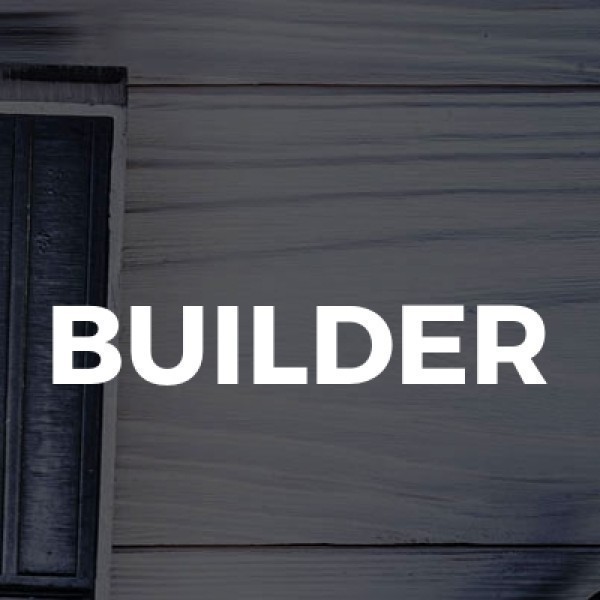Garage Conversions in Bristol
Welcome to EMKA Building Contractors Ltd, your premier choice for builders and renovation exp... read more »
Welcome to Severn Property Solutions Ltd, your trusted partner for all building and renovation needs in the heart of Bristolread more »
Welcome to Greenslade & Sons Limited, your go-to experts for all your building needs in Hartcliffe and the greater Bristol area. As a wel... read more »
SJE Design & Build Ltd is a distinguished family-run business nestled in the bustling area of Eastville, proudly serving... read more »
Welcome to Home Improvements, your go-to experts for... read more »
AMG Construction (Bristol) is your g... read more »
DJ Howse Property Services Ltd is yo... read more »
Welcome to MPK Conversions & Construction Ltd, your t... read more »
Total Protection Complete Roofing Solutionsread more »
West Country Works Ltd: Your Trusted Builders... read more »
Welcome to Cherry Complete Property Solutions, your t... read more »
PPS Maintenance and Renovation Services LLPread more »
Welcome to Wootten Developments, your go-to experts f... read more »
Welcome to Creo Creations Ltd, your premier choice fo... read more »
Welcome to D J Clark Construction, your go-to choice... read more »
Welcome to Tom Building & Decoration, your go-to expe... read more »
Welcome to A And G Building, your premier choice for... read more »
Search Garage Conversions in Bristol by town
Understanding Garage Conversions in Bristol
Garage conversions in Bristol have become a popular choice for homeowners seeking to maximise their living space without the hassle of moving. With the city's unique blend of historical charm and modern living, converting a garage can offer both practical and aesthetic benefits. This article delves into the intricacies of garage conversions, providing a comprehensive guide for those considering this home improvement project.
The Appeal of Garage Conversions
Garage conversions offer a myriad of advantages. For one, they can significantly increase the usable space within a home, transforming an often underutilised area into a functional living space. Whether it's a new bedroom, a home office, or a playroom for the kids, the possibilities are endless. Moreover, garage conversions can enhance the value of a property, making them a wise investment for the future.
Cost-Effectiveness
Compared to building an extension, converting a garage is generally more cost-effective. The basic structure is already in place, which means less construction work is required. This can lead to substantial savings on both materials and labour. Additionally, the process is typically quicker, reducing the disruption to daily life.
Environmental Impact
In an era where sustainability is key, garage conversions can be an eco-friendly option. By repurposing existing structures, homeowners can reduce the need for new materials and minimise waste. Furthermore, modern insulation and energy-efficient windows can be incorporated into the design, enhancing the home's overall energy efficiency.
Planning Permission and Regulations
Before embarking on a garage conversion in Bristol, it's crucial to understand the planning permissions and regulations involved. While many conversions fall under 'permitted development', meaning they don't require formal planning permission, there are exceptions. For instance, if the property is listed or located in a conservation area, additional permissions may be necessary.
Building Regulations
Regardless of planning permission, all garage conversions must comply with building regulations. These regulations ensure that the conversion is safe and structurally sound. Key areas covered include fire safety, insulation, ventilation, and structural integrity. It's advisable to consult with a professional to ensure all regulations are met.
Design Considerations
Designing a garage conversion requires careful thought and planning. The design should not only meet the functional needs of the household but also complement the existing style of the home. Consideration should be given to factors such as lighting, layout, and access.
Maximising Space
One of the primary goals of a garage conversion is to maximise space. Clever design solutions, such as built-in storage and multi-functional furniture, can help make the most of the available area. Additionally, choosing a light colour palette can create a sense of openness and airiness.
Integrating Natural Light
Natural light can transform a space, making it feel larger and more inviting. Consider incorporating windows or skylights into the design to bring in as much natural light as possible. If privacy is a concern, frosted glass or strategically placed blinds can offer a solution.
Choosing the Right Professionals
While some homeowners may be tempted to tackle a garage conversion as a DIY project, hiring professionals can ensure a high-quality finish. Experienced architects and builders can provide valuable insights and expertise, helping to bring the vision to life.
Finding a Reliable Contractor
When selecting a contractor, it's important to do thorough research. Look for professionals with a proven track record in garage conversions and check references from previous clients. Obtaining multiple quotes can also help ensure a fair price.
Working with an Architect
An architect can play a crucial role in the design process, helping to create a space that is both functional and aesthetically pleasing. They can also assist with navigating planning permissions and building regulations, ensuring a smooth process from start to finish.
Budgeting for a Garage Conversion
Budgeting is a critical aspect of any home improvement project. It's essential to have a clear understanding of the costs involved and to set a realistic budget. This should include not only construction costs but also any additional expenses such as furnishings and decor.
Estimating Costs
The cost of a garage conversion can vary widely depending on factors such as the size of the garage, the complexity of the design, and the quality of materials used. On average, homeowners can expect to spend between £5,000 and £15,000. However, it's always wise to have a contingency fund for unexpected expenses.
Financing Options
For those who may not have the funds readily available, there are several financing options to consider. Home improvement loans, remortgaging, or even government grants may be viable options. It's important to explore all avenues and choose the one that best suits individual financial circumstances.
Common Challenges and Solutions
Like any home improvement project, garage conversions can present challenges. However, with careful planning and the right approach, these can be overcome.
Dealing with Damp
Garages are often prone to dampness, which can be a significant issue during a conversion. Proper insulation and ventilation are key to preventing damp and ensuring a comfortable living environment. Waterproof membranes and damp-proof courses can also be effective solutions.
Addressing Structural Concerns
Structural issues can arise, particularly in older garages. It's essential to have a thorough inspection carried out by a professional to identify any potential problems. Reinforcing walls or floors may be necessary to ensure the conversion is safe and durable.
Case Studies: Successful Garage Conversions in Bristol
To provide inspiration and insight, let's explore some successful garage conversions in Bristol. These case studies highlight the diverse possibilities and creative solutions that can be achieved.
From Garage to Granny Flat
One Bristol homeowner transformed their garage into a cosy granny flat, complete with a kitchenette, bathroom, and living area. By using space-saving furniture and clever design techniques, they created a comfortable and functional living space for an elderly relative.
Creating a Home Office
With the rise of remote working, another homeowner converted their garage into a modern home office. Large windows were installed to maximise natural light, and the space was equipped with all the necessary technology and storage solutions to create a productive work environment.
Frequently Asked Questions
What is the average cost of a garage conversion in Bristol?
The average cost of a garage conversion in Bristol ranges from £5,000 to £15,000, depending on various factors such as size and design complexity.
Do I need planning permission for a garage conversion?
Many garage conversions fall under 'permitted development' and do not require planning permission. However, it's essential to check with local authorities, especially if the property is listed or in a conservation area.
How long does a garage conversion take?
On average, a garage conversion can take between four to six weeks, depending on the complexity of the project and any unforeseen challenges.
Can I convert a detached garage?
Yes, detached garages can be converted. However, additional considerations such as access and utilities may need to be addressed.
Will a garage conversion add value to my home?
Yes, a well-executed garage conversion can increase the value of a property by providing additional living space and enhancing its appeal to potential buyers.
What are the common uses for a converted garage?
Common uses for a converted garage include additional bedrooms, home offices, playrooms, gyms, or even rental units for extra income.
In conclusion, garage conversions in Bristol offer a fantastic opportunity to enhance living space and add value to a home. With careful planning, design, and execution, homeowners can transform their garages into beautiful and functional areas that meet their needs and lifestyle.
Send a message








